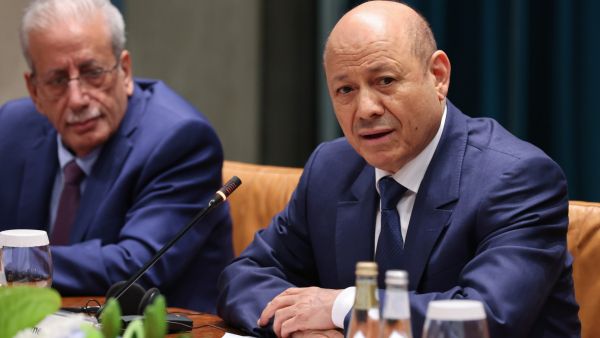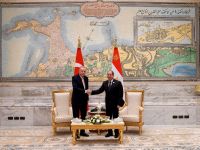ALBAWABA - Rashad Al-Alimi, Head of the Presidential Council in Yemen, has returned to Hadramout, a region located in the southeastern part of Yemen.
Accompanying him is Haider Abu Bakr Al-Attas, a prominent Yemeni politician and the first Prime Minister after the unification of Yemen, who has spent three decades in exile, Ahmed Obaid bin Dagher, head of the Shura Council, and other politicians and stakeholders from Hadramout. This return to Hadramout follows the recent establishment of the National Hadhrami Council in Riyadh by influential figures and stakeholders from Hadramout last week. It is seen as a response to the constant rebellion and disruptive actions of separatist armed groups in southern Yemen.
The timing of the Head of the Presidential Council's visit to Hadramout highlights a growing disagreement between the KSA-UAE coalition in southern Yemen. It also reflects the disharmony among members of the presidential council. The visit aims to address and manage the increasing rebellion of the separatist Southern Transitional Council (STC).
Given that Hadramout is the largest province in Yemen, it will now assume responsibility for its own finances, security, and administration. President Al-Alimi emphasized this during his visit and unveiled various projects in Hadramout. He also expressed that Hadramout's successful experience will serve as a model for other Yemeni governorates. The ultimate goal is to grant each governorate autonomy, ensuring security, and administrative independence, and fostering development through collaboration with stakeholders, central governments, and the private sector.









